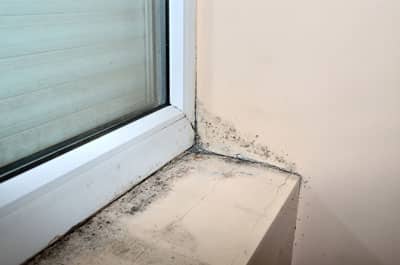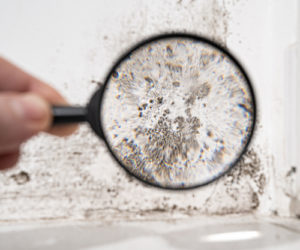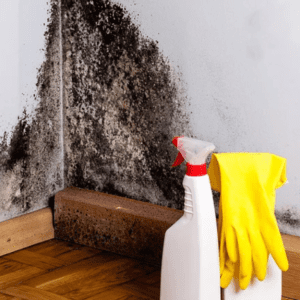Effective Article Mold And Mildew Removal Solutions for Your Home
Mold and mildew development in homes can be a consistent concern, frequently requiring a systematic technique for efficient post-remediation services. From comprehending the factors that add to mold and mildew development to carrying out proper cleansing techniques and dampness control measures, the process can be elaborate yet vital for preserving a healthy and balanced living atmosphere. testing air quality after mold remediation.
Recognizing Mold And Mildew Development Elements
Mold and mildew development is influenced by a variety of variables that are vital to comprehend in order to efficiently attend to and stop its spreading. Recognizing these elements is necessary in implementing successful mold and mildew remediation approaches. The main variable contributing to mold development is wetness. Mold and mildew spores require dampness to prosper and sprout, making humid or wet environments very susceptible to mold and mildew infestations. Poor air flow can additionally result in moisture build-up, creating an optimal breeding ground for mold.

Moreover, air flow and light direct exposure can influence mold and mildew growth. Areas that lack correct air flow and all-natural light are a lot more vulnerable to mold and mildew development. By attending to these variables adequately, people can effectively alleviate mold and mildew growth and safeguard their living settings.
Appropriate Mold Cleansing Strategies
Using reliable cleansing techniques is necessary in resolving and preventing the reoccurrence of mold and mildew contamination in interior atmospheres. When handling mold, it is important to prioritize security by putting on safety equipment such as gloves, masks, and goggles. The initial step in proper mold cleansing is to include the afflicted area to avoid the spread of spores to unpolluted locations. This can be accomplished by sealing off the space and using air scrubbers or adverse air makers to maintain air quality.

Applying Wetness Control Procedures
To effectively protect against mold and mildew development and contamination in interior atmospheres, implementing dampness control steps is paramount. Additionally, making certain proper air flow in locations prone to moisture buildup, such as kitchens and shower rooms, can aid minimize the risk of mold growth. By diligently carrying out these moisture control measures, property owners can properly lower the likelihood of mold and mildew recontamination and keep a healthy and balanced interior environment.
Utilizing Natural Remediation Solutions
After efficiently carrying out dampness control measures to stop mold and mildew development in interior settings, house owners can now explore the effectiveness of natural remediation remedies in keeping a healthy and balanced home. Natural removal options make use of eco friendly methods to fight mold and mildew and mold, making them a prominent option for those looking for click for info non-toxic options. One such service is using vinegar, an all-natural antimicrobial agent, to clean and disinfect surface areas infected by mold and mildew. Simply thin down vinegar with water and spray it onto the impacted areas, permitting it to sit for a couple of hours prior to wiping tidy. Furthermore, tea tree oil, known for its antifungal buildings, can be blended with water and sprayed onto mold-infested surfaces to hinder more development. Another all-natural option is hydrogen peroxide, which can effectively kill mold and mildew on various surface areas site without leaving dangerous deposits behind. By including these natural remediation solutions into their cleansing regimens, house owners can effectively deal with mold and mildew development while advertising a healthier indoor atmosphere for themselves and their family members.

Preserving a Mold-Free Atmosphere
On a regular basis inspecting areas prone to mold and mildew growth, such as washrooms, basements, attic rooms, and kitchen areas, is important. Proper air flow in areas with high moisture levels is also vital to protecting against mold development.
Furthermore, preserving tidiness in the home is vital for mold and mildew avoidance. Maintaining interior plants in check and guaranteeing appropriate drain in exterior landscape design can decrease dampness accumulation, reducing the likelihood of mold infestations.
Verdict
In conclusion, it is necessary to address mold and mildew growth factors, make use of appropriate cleaning techniques, apply dampness control steps, use natural remediation services, and keep a mold-free environment in order to effectively deal with post mold and mildew removal in your house - Post remediation mold testing near me. By adhering to these techniques, you can protect against mold from reoccuring and make sure a healthy and balanced living environment for you and your household
The primary aspect adding to mold growth is dampness. Mold spores need dampness to thrive and sprout, making wet or humid settings extremely at risk to mold and mildew invasions.To effectively stop mold and mildew growth and contamination in indoor settings, executing moisture control procedures is critical. Additionally, making certain correct ventilation in locations susceptible to moisture buildup, such as kitchens and bathrooms, can aid decrease the threat of mold development.After effectively executing dampness control steps to protect against mold development in interior environments, homeowners can now check out the performance of natural remediation remedies in preserving a healthy and balanced living area.
Comments on “Crafting an In-depth Post Mold Remediation Report”